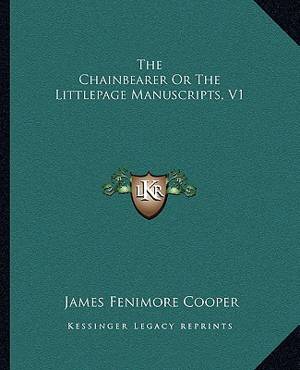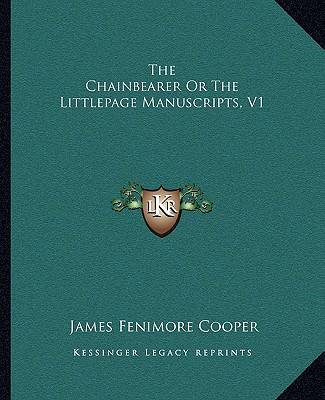
- Afhalen na 1 uur in een winkel met voorraad
- Gratis thuislevering in België vanaf € 30
- Ruim aanbod met 7 miljoen producten
- Afhalen na 1 uur in een winkel met voorraad
- Gratis thuislevering in België vanaf € 30
- Ruim aanbod met 7 miljoen producten
Zoeken
€ 35,45
+ 70 punten
Uitvoering
Omschrijving
The Chainbearer Or The Littlepage Manuscripts, V1 is a novel written by James Fenimore Cooper. The story is set in the early 19th century and revolves around the Littlepage family, who are wealthy landowners in New York. The main character is a man named Miles Wallingford, who is a chainbearer, a person who measures and marks land boundaries. Miles is hired by the Littlepage family to survey their land, but he soon finds himself caught up in a complex web of deceit and betrayal.The novel explores themes of land ownership, inheritance, and the struggle for power and control. It also delves into the social and political issues of the time, including the tensions between the Native American tribes and the white settlers.The Chainbearer Or The Littlepage Manuscripts, V1 is the first book in a trilogy, with the other two books being The Redskins and The Trapper. It is a classic work of American literature and is considered one of Cooper's best novels.Although the fortunes of the country had undergone so much waste, during seven years of internal warfare, the elasticity of a young and vigorous nation soon began to repair the evil. It is true that trade did not fully revive, nor its connecting interests receive their great impulse, until after the adoption of the Constitution, which brought the States under a set of common custom-house regulations; nevertheless, one year brought about a manifest and most beneficent change. There was now some security in making shipments, and the country immediately felt the consequences.This scarce antiquarian book is a facsimile reprint of the old original and may contain some imperfections such as library marks and notations. Because we believe this work is culturally important, we have made it available as part of our commitment for protecting, preserving, and promoting the world's literature in affordable, high quality, modern editions, that are true to their original work.
Specificaties
Betrokkenen
- Auteur(s):
- Uitgeverij:
Inhoud
- Aantal bladzijden:
- 192
- Taal:
- Engels
Eigenschappen
- Productcode (EAN):
- 9781162690599
- Verschijningsdatum:
- 10/09/2010
- Uitvoering:
- Paperback
- Formaat:
- Trade paperback (VS)
- Afmetingen:
- 190 mm x 235 mm
- Gewicht:
- 340 g

Alleen bij Standaard Boekhandel
+ 70 punten op je klantenkaart van Standaard Boekhandel
Beoordelingen
We publiceren alleen reviews die voldoen aan de voorwaarden voor reviews. Bekijk onze voorwaarden voor reviews.











